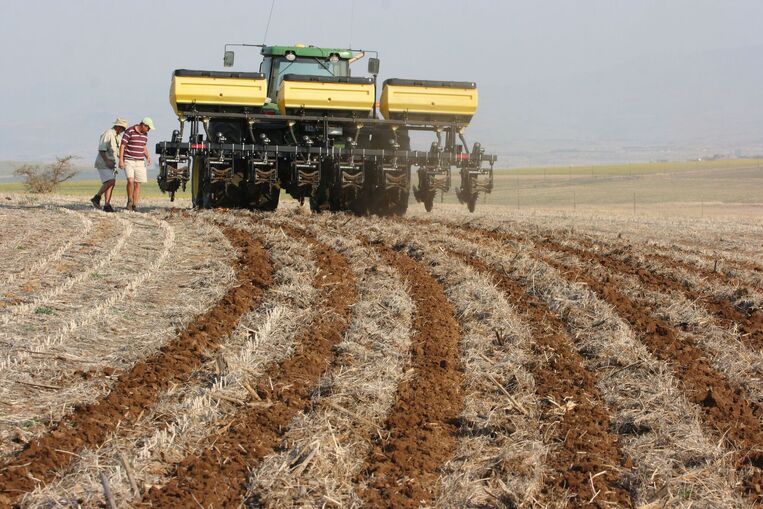Λίστα αντικειμένων
If you’re wondering how to get started improving your soil health but aren’t ready to dive into no-till farming yet, consider implementing a strip-tillage system as a sound first step.
Paul Jasa, Extension engineer at the University of Nebraska-Lincoln, describes strip-till as a transitional tool because it calls for tillage between strips, as opposed to no-till, which eliminates tillage altogether.
Jasa cites five reasons to implement a strip-till system on soils that have a tillage history:
- Dry out wet soil. Tilling a strip 6 to 8 inches wide to create a seed zone in the field will help dry the soil, especially if you already experience poor drainage.
- Warm the soil. Removing some residue allows sunlight to penetrate the soil and warm it up so the seeds can be planted in optimal conditions for germination.
- Open up soil compaction. A field that’s been tilled for years will have a compaction layer that needs to be broken up in order for water to infiltrate the soil and for roots to grow. A strip-till implement working the soil at approximately 16 inches deep can break through that compaction for you.
- Place fertilizer. Strip-till is also considered a fertilizer placement tool as it allows you to inject nutrients into the root zone, exactly where the crop will need them.
- Gain peace of mind. Jasa explains, “The fifth reason in my book sounds odd, but there are people out there who will sleep better at night because of the simple fact that they did something in the field.” In addition, reducing the number of passes over fields will save you time and money on labor and fuel costs.
When thinking long-term about your soil health, keep in mind that no-till farming increases resiliency best. It strengthens the soil structure against compaction, reduces erosion, and increases soil organic matter as residue is left to decompose naturally.
According to Jasa, “You need to get your soil health working with you. Residue is your best friend and sometimes, your only friend.”
Source: https://www.agriculture.com/





